The hosts of On the Barricades, Maria Cernat and Boyan Stanislavski, report on how the Russian invasion of Ukraine is affecting Romania and Poland. This is a special episode co-produced by On the Barricades and theAnalysis.news with Paul Jay.
Maria Cernat
Hello, and welcome to our show. This is your host, Maria Cernat. I am a Romanian-based academic. This is a special of our show On The Barricades that is produced with theAnalysis.news. I have with me Boyan Stanislavski, as usual, the co-host of our show, a Bulgarian-born Polish journalist. Thank you for being here with us, Boyan.
Boyan Stanislavski
Pleasure.
Maria Cernat
And our special guest and co-host, Paul Jay. He’s a journalist, filmmaker, the founder and the host of theAnalysis.news, a video and audio current affair interview and commentary show and website. Check it out because it’s very interesting. He produced a lot of films as a filmmaker. He was the Chair of the Documentary Organization of Canada. Thank you for being here with us, Paul.
Paul Jay
Thank you.
Maria Cernat
So we are going to discuss this time, not Canada or the United States. We are going to move on to the other side of the planet. We are going to discuss a very small country, Romania.
Boyan Stanislavski
It’s not a very small country compared to Poland.
Maria Cernat
And Bulgaria, because Boyan, being Bulgarian born, has a lot of connections to Bulgaria. He can provide information from there. So let’s move on. What is your question about these very important countries in this new geopolitical context?
Paul Jay
Well, Romania is a very important country to me personally because my video editor is Romanian. He’s been talking my head off, and that’s partly my question. I’ve worked with him for many years. I would say we were in agreement almost entirely on all political issues. This included critiques of U.S. aggression and NATO [North Atlantic Treaty Organization]. I’ve always said NATO should be abolished. I’m a dual citizen. So with my Canadian hat, I’ve always advocated Canada should get out of NATO.
Since the invasion of Ukraine, my editor has gone to what is close to a pro-NATO position. He’s gone to a point where he actually thinks that at this time, there shouldn’t be a critique of NATO. It’s deflecting from what the Russians are doing in Ukraine and that you can’t blame all of this on NATO or most of it. I have to say some sections of the American Left, in the scheme of things, are pretty small. In the global South, maybe not so small. Putting more blame on NATO than on [Vladimir] Putin and Russia, he objects to this. So I’m asking you, is he a reflection of Romanian public opinion, and what do you make of his views?
Maria Cernat
Well, he is the perfect expression and reflection of the Romanian public opinion, at least of the mainstream press and Romanian intelligentsia. Most of our influencers, intellectuals, journalists, and writers became very scared, I would say. They said, look, we talked about how Russia was a threat, and we never believed it would end up in a situation like this, but now you have it. We have a very powerful security apparatus. Let me remind you, Romania may be a small country, but we are among the very few selected club of countries that pay 2% of their GDP for weapons and military expenses, as NATO requires us to. Even though we are very poor and 38% of our children live in poverty, we pay 2% of the GDP for NATO.
Now the security apparatus had its moment. They said, look, we told you so, you see. Now President [Klaus] Iohannis has decided to go for more. He announced that he will enlarge the expenses for military equipment to 2.5% of our GDP. So, yes, he’s the perfect example.
Leftists in Romania are mostly connected to NGOs. They are activists. They are people coming from very privileged social classes in Romania. There were no leftists as in leftists in unions. Unions are quite conservative in Romania. They are not very politically engaged in the way that they read [Karl] Marx or [Vladimir] Lenin. They are Left. They follow their interests, their class interests, but for most of them, they don’t even understand what that is. They are not connected, unfortunately, and not very politically educated.
So you have a specific brand of leftists in Romania that became very pro-NATO and pro-American. There were pro-Americans saying we are leftist, but we don’t want to criticize NATO. We have this very big wolf, which is Russia, who is threatening us. It is so good that we live under the American thumb because we are protected. So this was the mentality.
Unfortunately, Russiaphobia in Romania has very deep roots. First of all, during World War II, Romanians had very nasty experiences with the Red Army coming here and treating people in a very harsh manner, to say it mildly. I mean, there were war crimes and people were raped. Even my grandmother, everybody has this phobia of the Russian Army because of what they did here. That is one root.
The second root was [Nicolae] Ceaușescu. When he came to power in the ’70s, he wanted to break free from Soviet domination. He actually made a deal with [Richard] Nixon. He visited Nixon and took a loan from the IMF [International Monetary Fund]. He wanted to break free from the Russians. The way to do this was to prop up nationalism to a level that is unbelievable and to also demonize the Russians.
The third root, I think, is the opportunistic way our leaders developed. They wanted to be like the intellectuals from the West. They wanted a seat at the table. They wanted validation from the West. They wanted to be recognized. For most, especially the leftist ones, this is the perfect moment to show that they are on the good side of history and they are not bad filthy leftists that would support Russia. They are good leftists that are pro-NATO.
This being said, I think the situation in Romania, especially in leftist circles, is rather depressing since there is a very small minority formed of what they are calling nostalgics. There are people that lived during the Communist era, so to speak. So they are rather old, and they do not hold a grudge against the U.S.S.R. They do not regard it as the hell on Earth that the others said they experienced during the time before 1989.
Apart from that, there are very few critical voices. Unfortunately, in Romania, what you can find right now are people who are more pro-American than the Americans themselves. Why? Because you, as Canadian or American citizens, have to live with the consequences of their decision. They cannot be blinded. Whereas in Romania, we live in a fantasy world where the American dream is still a thing here. I mean, the Mayor of Bucharest wants to build a statue of Ronald Reagan. I don’t think that even in the—
Boyan Stanislavski
We already have it.
Maria Cernat
States you would find people wanting to build this. Imagine the Mayor of New York advocating for something like this. Or maybe the Mayor of Washington announced—
Paul Jay
Well, let me ask you. How has the invasion changed how you look at things? Or has it? I know before the invasion we talked, and I think you, and pretty well everyone else commenting, never expected it to happen. Now that it has, does it change the way you look at things?
Maria Cernat
Yes. Yes, it did in the way that I feel isolated in my attempt to discuss things from a more rational perspective. If you go along with the mainstream media and intellectuals, you’ll feel good because you feel integrated, validated, and accepted. But there is no way out. There is no way out of this situation. If you believe that Putin is crazy, it means there is no room for negotiations. You cannot negotiate or discuss rationally with a crazy person. So negotiations are out. Then if you believe that he is crazy, that there is no dialogue, then there are no points to be negotiated. There is only the situation, as a very interesting Professor Nicolai Petro put it. Putting forward your ideas and expecting others to obey is not a dialogue. This is what prison guards do to inmates. This is not a dialogue. Dialogue means that you are open to ideas, and you are open to compromises. You cannot compromise with Satan. If Russia is Satan, if Putin is Satan, there is no room for compromise. Suppose you believe that the hidden agenda of Putin is to invade Romania, Poland, and Bulgaria and restore the old power of the USSR. In that case, there is no room for compromise and discussion. There is no room for negotiations. It means that we have to prepare for World War III and be happy that we died on the right side of history. Take comfort in the idea that Zelenskyy will be happy with our choice. This is how it ends. There is no way out. There is no way out.
It changed my perspective on what? Of course, I didn’t think that they would attack. I had this intuition that the Russians, unfortunately, because they were never forced to win elections, they have no soft power skills. They’ve learned nothing from the United States in terms of toppling governments with soft power, with the CIA [Central Intelligence Agency] and with the secret services. Unfortunately, it seems like the brutal way is the only way for them. From my point of view, this is the way of a very limited, not to say even stupid, this is a stupid strategy. You can beat up somebody, and you can force them to obey but for how long? For how long? How are you going to move on? I mean, you defeat Ukraine, finally.
It is my opinion that this is very near because I believe most of the Ukrainian Army has been defeated. I think this is why the Western media is not telling/selling any more stories about the brave Ukrainian Army. The situation is rather bleak. But then what? They probably have some cards they haven’t played yet. In terms of Ukraine, you want to de-natzify? You want to do them good by force by killing those people? In the eyes of battalions, you think you can do better than their leaders, and you can go there as a savior? Not even as a savior. Putin’s discourse before going to war was, I think, one of the worst discourses. He didn’t learn even that from the Americans. The Americans never go to war against a country or a nation. They go there as missionaries and as saviors of the people. They never say that that nation doesn’t have the right to define itself. They never say that. So how can you go there and say, oh, Ukraine is some sort of batch of territories, population, and they don’t have a will of their own? What are you talking about? This is not a way to go to war. This is a way to antagonize everybody. This is what I think.
Paul Jay
Okay, let me ask, Boyan. Thank you, Maria. Before we get too much into Poland, I just want to go back to the last time we talked about all this. At one point, you weren’t convinced that Russia wasn’t even amassing troops on the border. Then you, me, and almost everyone else didn’t think he would invade. The logic was that threatening the invasion was dividing NATO, and an actual invasion would unite NATO. So now that he’s actually invaded, how does it change the way you look at Putin, at Russia and the situation? Then get into how it’s affecting Polish public opinion?
Boyan Stanislavski
Well, I was obviously wrong to think that Putin wasn’t going to invade. As you said, most of us have made this mistake. To me, it remains pretty inexplicable up to this point. I’m not quite able to explain the Russian position here. As Maria pointed out pretty clearly, Putin’s unhinged speeches before the war didn’t quite help. It all makes no sense when you look at it in retrospect. He first said that the leadership of Ukraine is a bunch of drug addicts and alcoholics. Then he said something about Ukraine not really being a State, and then he accused Lenin and the Bolsheviks of creating Ukraine as this pathological entity as it is right now. He basically accused them, almost, of inventing Ukraine. It all made no sense. It was total chaos. Obviously, when I saw him, he wasn’t even in shape. He was tired. He was not himself. When you compare Putin to the 20th, 21st, and 22nd of February right before the invasion to one year ago, February the same time one year ago, then you would see two different people. I really don’t know what happened. I wish someone tells me. Maybe someone comes out and says what actually changed and when.
Now there are certain factors which we might discuss later if you feel it makes sense. What could have happened? There are some indications of that. As to the potential change of my views of Putin or Russia, I’ve always been politically and ideologically, if you like, critical of Putin and of his regime. I participated in all kinds of initiatives and demonstrations against Putin or against some of his actions long before they became cool and trendy. So in this respect, I would say that not much has changed in the sense that I wasn’t expecting that he would actually launch a war on Ukraine. I mean, I wasn’t expecting that he would do that. I was expecting, and I said that multiple times, maybe not in the program when we discussed, but I said that multiple times. Maria can attest because she was there. My position was that a war could happen and probably would happen when Ukraine finally attacks those two breakaway republics. Russians would use it as a pretext to come in and sort out the Ukrainian thing.
There are some people saying that they were about to attack them. There is no evidence of that so far. So again, I just circle back to the point that I just don’t understand why it is all happening. What is the main reason that convinced the decision-makers and Putin himself to launch this invasion? As to the question of the amassing of Russian troops. Well, I feel that my assessment at the time was correct. I said they were not amassing troops on the border. There is no evidence of them amassing troops on the border. There clearly wasn’t any evidence. What was happening at the end of last year was they were putting more troops in the base, which is 300 km away from the Ukrainian border. You might say, well, that is amassing troops on the Ukrainian border. Then at the beginning of the current year, they started actually taking troops away from there. So it was 100,000 during the summer last year. Then it was 130,000-140,000 in November and December. Then it was about 90,000 or even less in January. So again, I have no idea what this was for.
Some people say, including guests on our program, that they were trying to show force to America, that they were prepared to invade and stuff like that. I don’t know whether any of this is true.
Paul Jay
Let’s go to Poland then. I think we could do a whole other show on why we think Putin did what he did.
Boyan Stanislavski
And why we think it was a mistake. I think it was politically a mistake, as you pointed out in the previous segment. But it was also a mistake, I think, tactically or strategically, because the war hadn’t been going so well for them.
Paul Jay
Yeah, in many respects. In terms of Polish public opinion, has it reinforced to have a stronger NATO presence? Tell me exactly what is the state of missile systems in Poland? Would Polish public opinion actually accept a nuclear weapon? There aren’t nuclear weapons in Poland now, am I correct? Would they accept such a thing now when they wouldn’t have before?
Boyan Stanislavski
I think they wouldn’t accept it now. Like, if you offer it, like let’s have it tomorrow. I think the public opinion would have to be wrecked a little more. It would have to be prepared, and some anesthesia would have to be administered in order to prepare the public opinion for that. I think that the current government is able to do that and is able to carry out such a campaign because they control most of the media. By the way, because Maria said that the Russians have never learned anything from the Americans, well, they learned how to control the media and how to exercise soft power on their own territory and to project it on their own population.
Paul Jay
They did a pretty good job with RT in North America, too.
Boyan Stanislavski
Yeah, you’re right. So the current government in Poland is able to carry out such a campaign. I think it’s able to carry it out in a successful manner because, similar to Romania, in Poland, there are genuine anti-Russian sentiments and resentments. Now they have been unleashed. So far, it’s been pretty artificial. It’s a bit like this ‘Banderite’ Nazism in Ukraine. It has always been a problem, but it was somewhere on the fringes of political life, and it was controllable. After the coup in 2014, the Americans, the West, and NATO allowed this force. They unleashed this force to the extent that it took over a large part of the decision-making process politically in Ukraine. There are multiple videos where Zelenskyy complains about it, or he tries to confront soldiers, rank and file soldiers, telling them that they have to back off from the positions that they’ve taken without the permission of the authorities. The soldiers insult him and say you are not here to tell us what we’re going to do. So they unleashed this force without thinking much about what it will lead to.
The same is happening now in Poland. Of course, we don’t have Nazis in any kind of decision-making positions, but the same in terms of quality. The Polish Russo-phobic kind of nationalistic agnosticism is now at the forefront of the ideological front, if you like, of the public life. This makes things very unhinged, and this allows this government. That’s why I keep repeating that this war is a blessing for the Polish government because they’ve almost run out of ideas on how to disbalance the society emotionally in order to rule further. Now they’ve got this great thing, and that’s why they’d love to have nuclear weapons. This is why they come up with all those crazy ideas that even the Americans have to shut them up. Like the MiGs, do you remember this? We’ve mentioned this occasionally on our programs in the past. The viewers probably know that I’m talking about. This idea of the Polish MiGs, meaning military aircrafts from the Soviet era. Poland, Romania and maybe some other countries of the former Eastern bloc would be given somehow— I don’t even know how this would happen technically— it would be given to pilots or would be made available to pilots from Ukraine to wage air war on Russian planes or the Russian military. This was crazy. This was obviously high—
Paul Jay
Why on Earth would they want a nuclear weapon on Polish soil? The Americans don’t ever give up control of these weapons. It’s not like it would give Poland some extra leverage. How the hell does it serve their interest other than to make Poland even more of a target?
Boyan Stanislavski
Of course not. Of course, it doesn’t, and that’s exactly the problem. Our elites and our political leadership don’t think in those rational terms. They think they have to be as obedient as possible to their hegemon, and they want to have a hegemon. Historically they’re not used to being independent. They will make decisions which are going to observe the national interests of a given country. They see their interest as an elite. The best they can do is to be as obedient as possible so that they can receive some respect from or at least pretended respect from the global decision-makers. They can perhaps play a role, some kind of role in the American Western geopolitical game that they will be able to boast about that afterwards through their own electorate. That’s the best they can hope for. There is no understanding. I’m talking pretty much throughout Eastern Europe, I mean, throughout the former Eastern bloc, with certain exceptions. Historically and even now, you could do something independently. You could do something without the blessing, the agreement, the kind of inspiration coming from the United States.
So this is why they don’t think that way. Had they thought this way, I would understand that it could be a rational choice. It could be. I wouldn’t support that. One could argue to put all our eggs in the NATO basket because NATO is the only way to defend the country from Russian, Chinese, or any other aggression, and let’s do that. If you want to do that, then you want to do that in some kind of manner which actually provides security. Where is the security? And this is your question, where is the security if we get more American military equipment on Polish soil? Well, that’s just more targets for Russian rockets. The same goes for Bulgaria. The same goes for the Czech Republic. The same goes for Romania.
Actually, I remember one interview on Bulgarian TV where an analyst that I like in Bulgaria, a professor, was asked, are you really anticipating that the Russians are going to attack all those places, all those spots where the American military installations are being put? He just replied by asking, are you asking me the question of whether there will be enough Russian rockets? Well, there will be enough for everyone, don’t worry.
So this is pretty much the situation. They don’t quite comprehend that by doing what they’re doing, they’re actually escalating the situation and endangering their own population and themselves. They’re repeating the 1939 historical moment. They are just offering the Western powers their own territory, their own population and their own military for this Western idea of how to manage things geopolitically in that part of the world.
Paul Jay
I think it’s because there’s so much money to be made doing that personally and individually. Bill Black, who I interviewed a lot about banking fraud in the United States. I would ask him, but I don’t understand. These guys who ran banks were deliberately getting companies that did appraisals to artificially inflate the price and value of houses for bigger mortgages. They had to know this would endanger their banks. Bill would say to me, you don’t understand. It’s not about the banks. It’s about the bankers. The individual bankers were making a killing out of all this. They didn’t care about what happened to their institutions. You can say the same thing for American politicians, East Europeans, or you name it. They’re making money out of all this militarization, even if it makes absolutely no sense and actually makes the world more dangerous.
Boyan Stanislavski
Yeah. Would you let me just finish my thought on the question? Because I said that there is a potential concept that could be put forward where NATO is the guarantor of our security. I would like to see Polish politicians sitting at a table with the Americans or the Germans, saying, where is the money? Give us money. We’re going to buy arms. We’re going to train our army. We’re going to triple or quadruple our army and the capacity that is required to defend ourselves. They’re not doing that. They’re just saying that, well, it would be great if the Americans come here, and we will name the military base for Trump. That was really the idea. That’s the best they can come up with.
We’ve heard that before. In recent history, like seven years ago, that was exactly the same game. The British said, yeah, go for war, no problem. Go for war with [Adolf] Hitler. Everybody was afraid of the Nazi military might. Everybody was afraid in Europe of the military might of the Third Reich, except for the Polish. The Polish we’re tapped on the arm, and we were told you’re a great nation, go for war, no problem. We have your back, and that was it. It ended with the complete obliteration of the Polish state. Had it not been for the Soviet Union, there probably would be no Poland. So I just wanted to make that point, to sort of explain it.
Paul Jay
I’m putting up my hand here only because I was told when we started that Boyan had to go. So you tell me, should we just schedule another session?
Boyan Stanislavski
Yeah, I think we should. Sorry, I have to go in five minutes. I’m sorry about that.
Paul Jay
Do you want to have a quick last word, Maria?
Maria Cernat
Yes. I just want to say that President Iohannis dreams about becoming the next head of NATO. He even discussed this. I think one of the important people is [inaudible 00:32:20], who is also Romanian. I think for the Romanian leaders, it is a way to climb this hierarchy and to reach higher paid and very safe positions in NATO, at least, this is my understanding. I also want to say a detail here. I think it’s important. We have an Army General as the Prime Minister. An Army General who plagiarized his Ph.D. thesis. There is a scandal in Romania related to that. So good luck with these people defending us in the case of a war.
Paul Jay
I’ll believe it. I hope I don’t have to see it when an American soldier will actually die defending Romania and Poland and risk nuclear war. Let’s hope we never have to have to analyze that.
Alright, I’m not actually hosting this, so I’m going to say goodbye, but Maria is going to say the real goodbye.
Maria Cernat
Okay. So this is it. I hope you liked it. And to the extent that you can afford it, please go to our Patreon page, patreon.com/thebarricade and make a monthly subscription because it really helps us. Thanks a lot, Paul. Thanks a lot, Boyan. We’ll see each other next month when we will be discussing important countries like Romania, Bulgaria, Poland and New York.
Boyan Stanislavski
I also want to say that we’re also going to be discussing Hungary and Serbia, where they recently held elections, and the turnout is worth discussing. Definitely.
Paul Jay
Well, while you’re doing pitches, I’m going to be interviewing this week a Ukrainian socialist, progressive activist. She says that all of us who are analyzing stuff are spending too much time on the geopolitics, with Russia versus NATO, and we’re not paying enough attention to the struggle of the Ukrainian people for national liberation against Russia and NATO. So I’m going to be talking to her in a few days.
Boyan Stanislavski
It’s going to be interesting. Okay.
Maria Cernat
Interesting. So thanks a lot.
Boyan Stanislavski
Bye.
Podcast: Play in new window | Download | Embed
Subscribe Apple Podcasts | Spotify | Android | iHeartRadio | Blubrry | TuneIn | Deezer | RSS
Never miss another story
Subscribe to theAnalysis.news – Newsletter
“Boyan Stanislavski is a Bulgarian and Polish activist, journalist, editor, publisher, and translator.”
“Maria Cernat is a Senior Lecturer at Titu Maiorescu University, editor at The Barricade, and vice president of the Institute of Social Solidarity.”
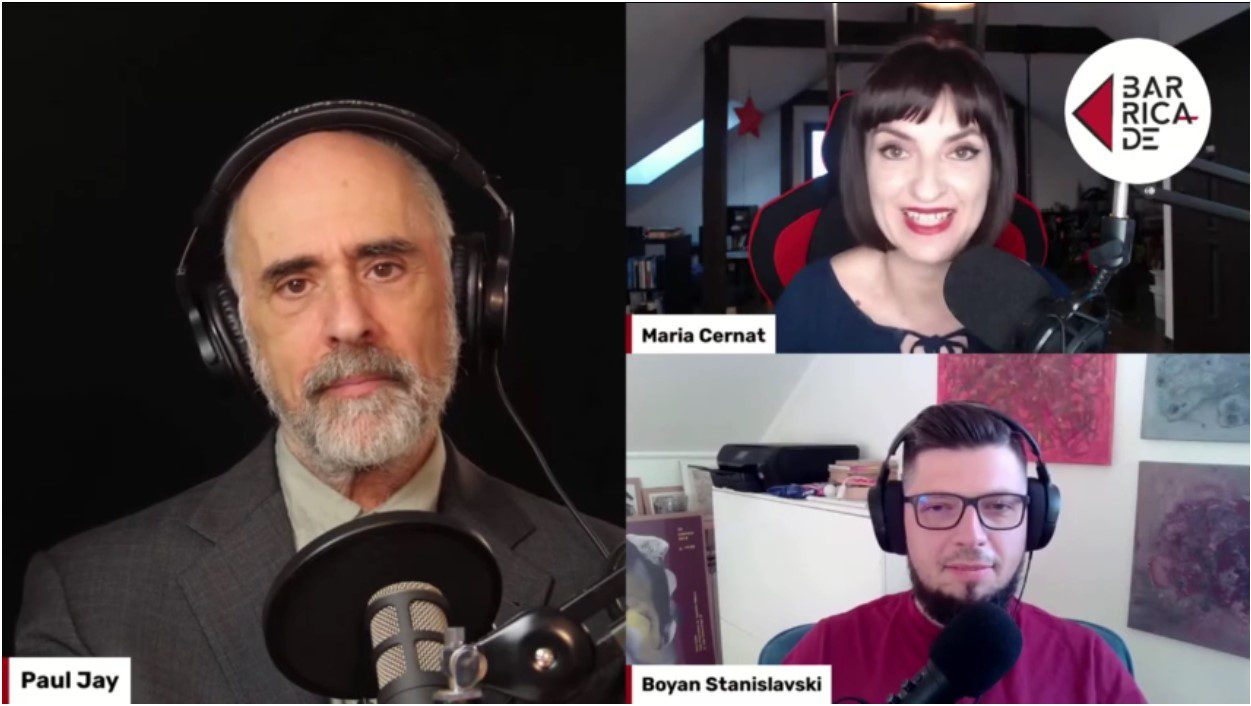


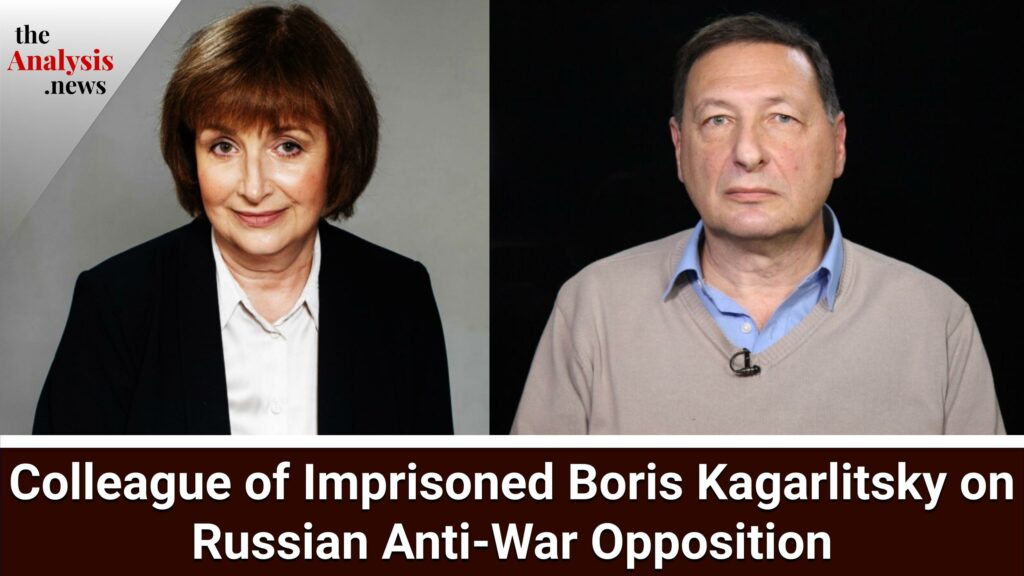
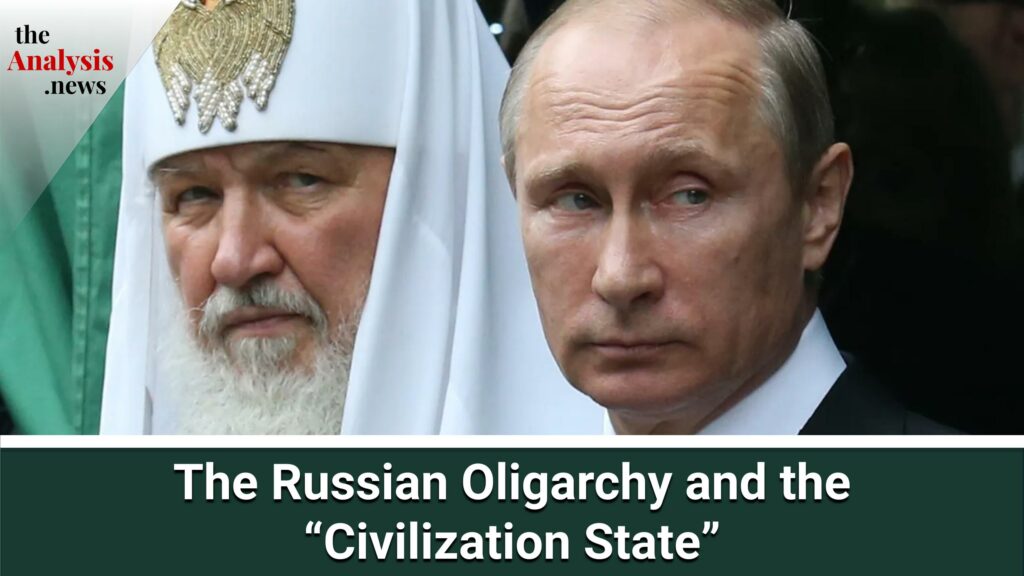
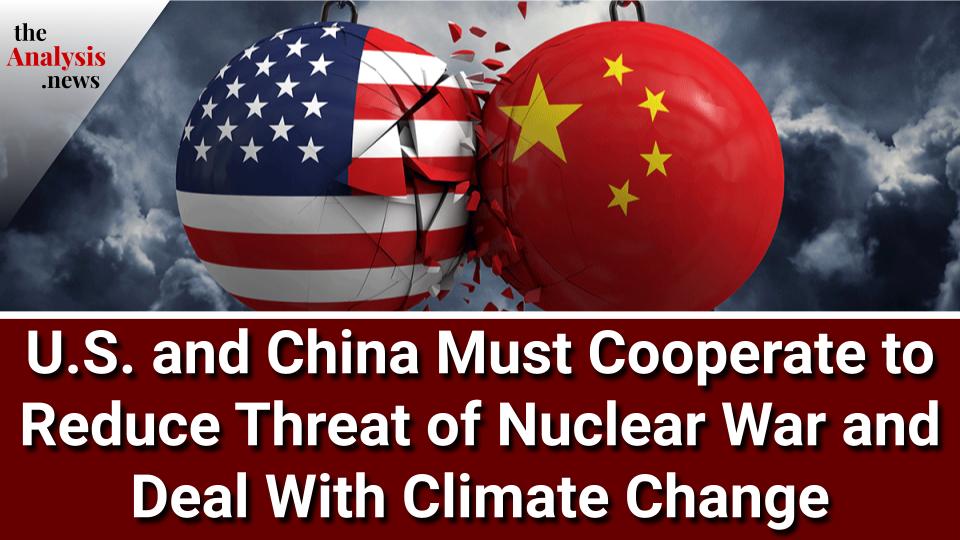
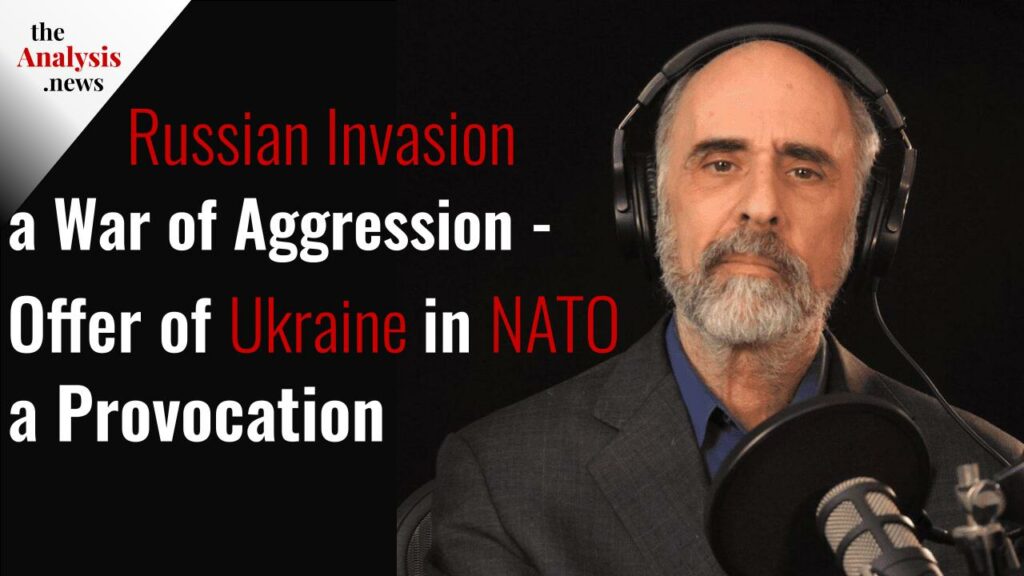
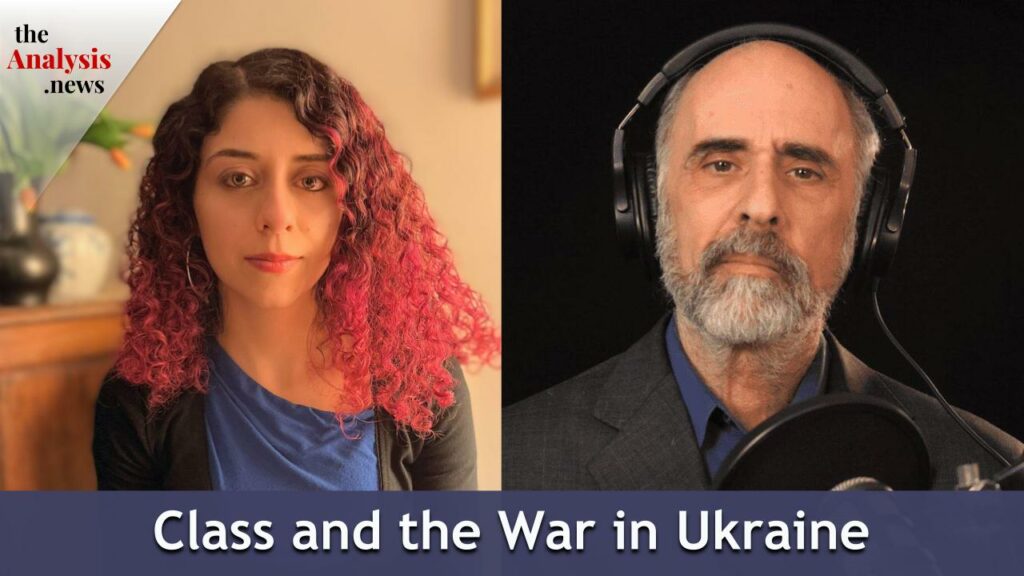
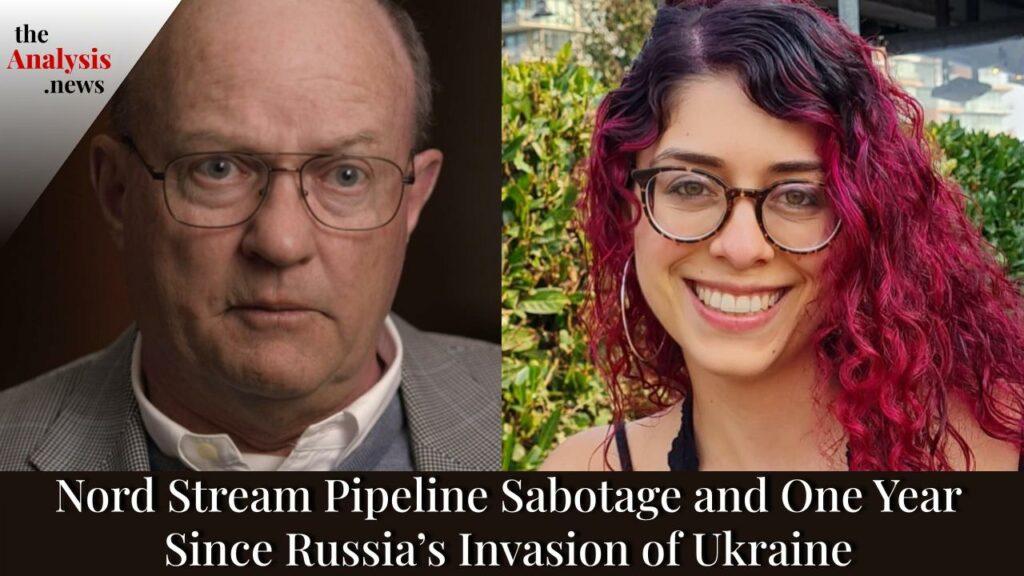
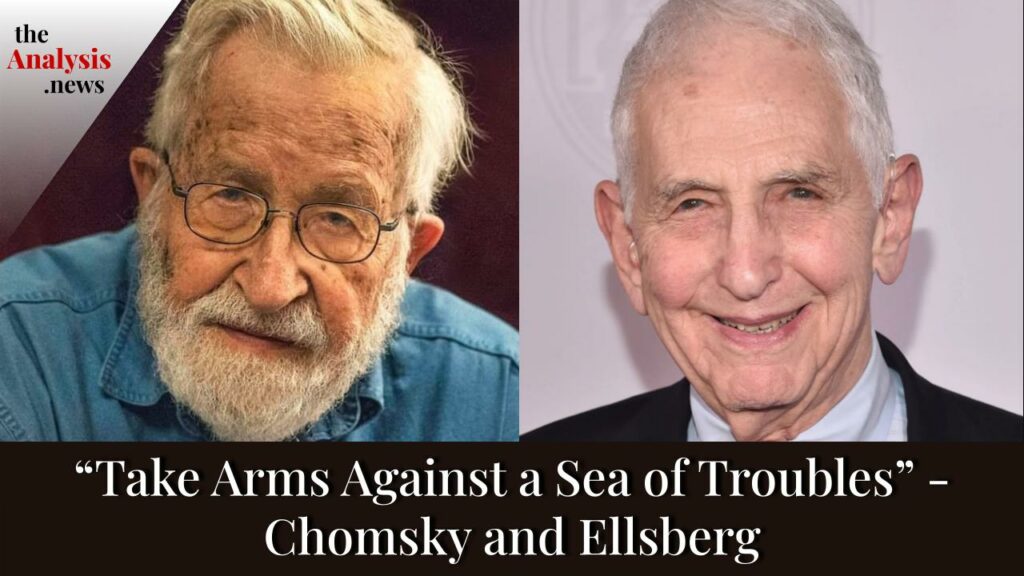
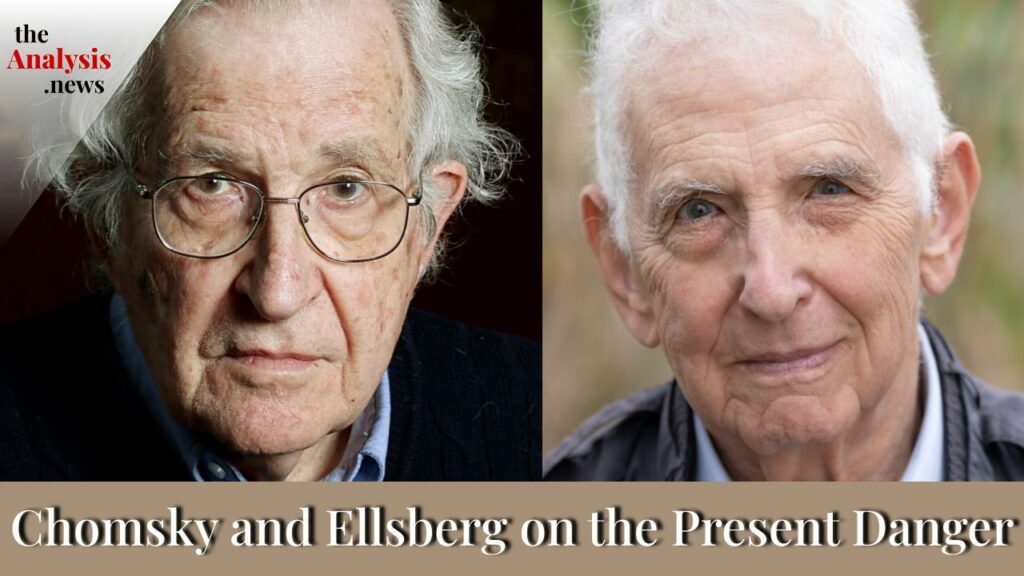
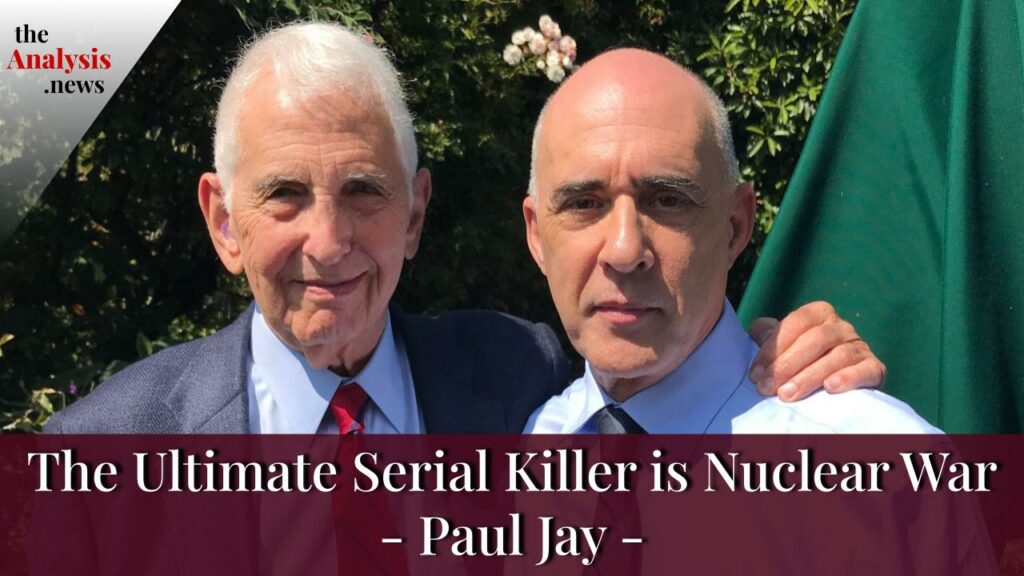

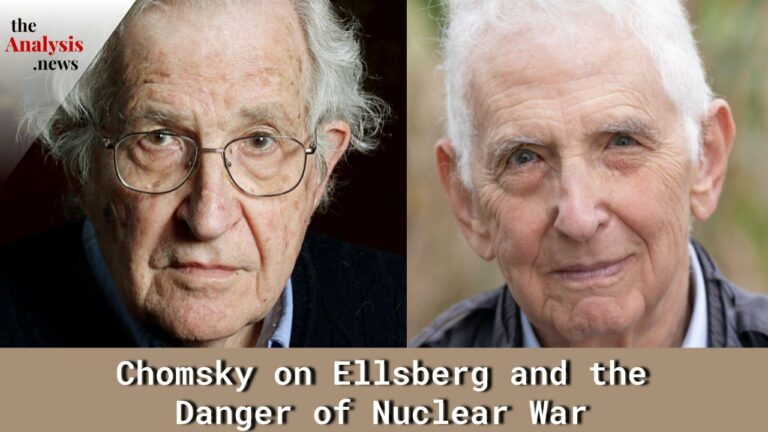
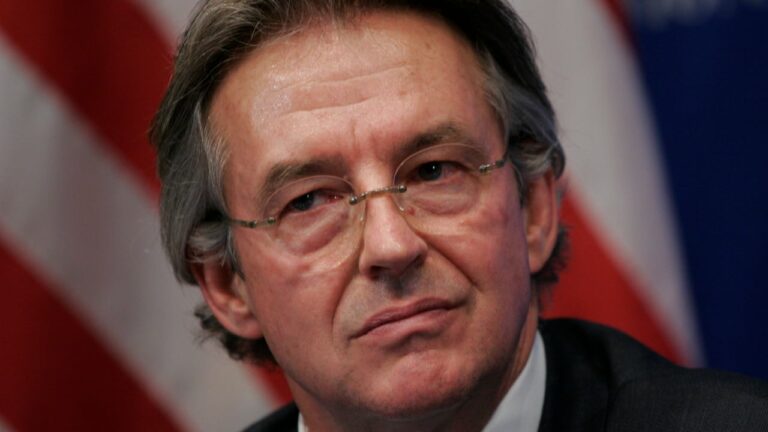

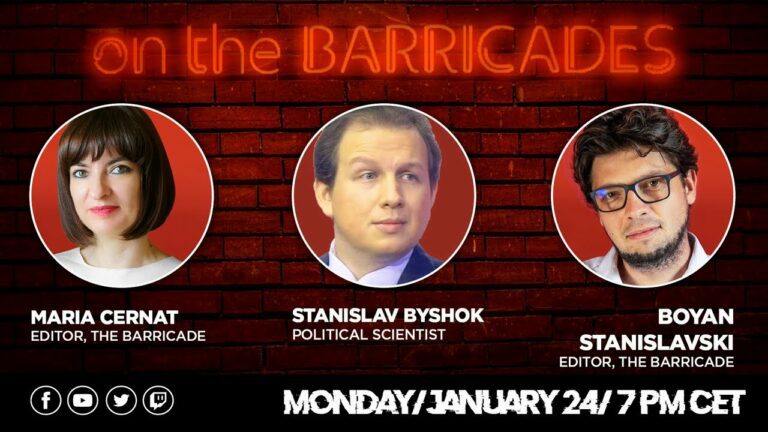
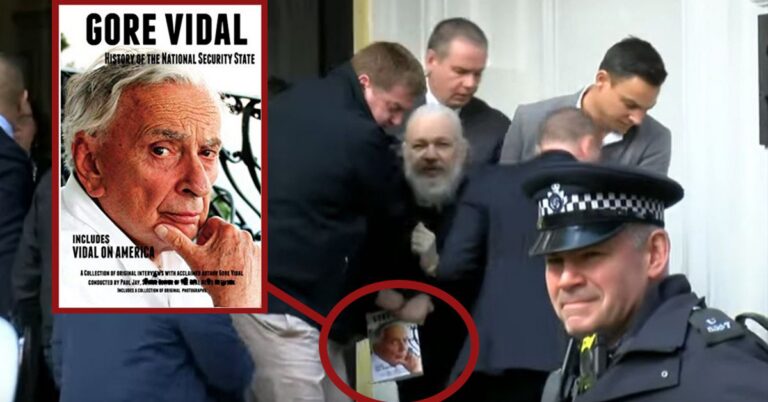
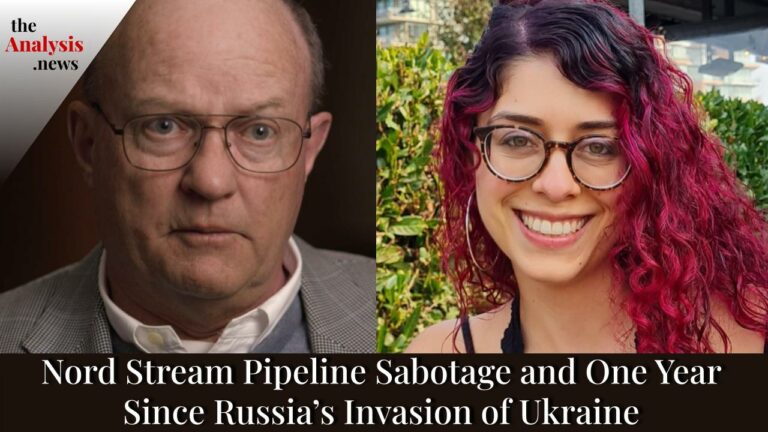
Paul:
I took another look at your interview with Denis Pilash, and thank-you for asking detailed questions about the influence of the Ukrainian far-right and the US and NATO, far more than I gave credit for. However, as may be expected, many of his answers were biased against Russia, and not much weight given to the threat of violence from the Ukrainian far-right, supported by the US, nor the possibility the US was trying to control Ukraine (via IMF austerity programs, political influence via NGOs). Is not geopolitics central to understanding the conflict in Ukraine? Is this conflict not the sum history of Russia’s interest in Ukraine vs that of the US?
The US and Russia have vied for political influence in Ukraine since it was formed from the end of the Soviet Union. Neither imperial power has served the Ukrainian people, but instead abetted the corruption of the Ukrainian oligarchy. I can understand local activists wanting attention for the liberation struggle of the Ukrainian people, but I would ask them how the Ukrainian people can deal with the tug-of-war between the US and Russia? The activists interviewed so far believe Russia wants to conquer all Ukraine, and that Putin is irrational, but the truth may be more complex than that.
…
Another question: Is the far-fight movement in Ukraine a culmination of the dysfunctional economy, the austerity programs successive Ukrainian govts have carried out on behalf of the IMF (and by extension the US govt)? Often fascist movements seek scapegoats, and the ethnic tensions between west and east, native Ukrainian and Slav, provided ample fuel. The US may have created the conditions for a far-right movement to flourish, and then through the Maidan revolution, empowered it to influence the Ukrainian presidency, through threat of violence.
…
I would draw your attention to an article on consortium news, with a scholar that grew up in the Donbas, for comparison: https://consortiumnews.com/2022/04/29/ukraine-the-real-zelensky/